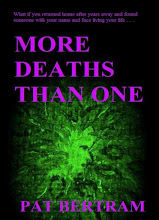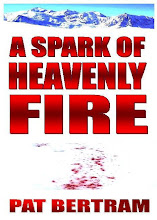Nope. Sorry. Can’t do it.
Although I’ve been telling you that to get published in today’s market you need a character who wants something desperately, I’ve never been able to do it. I spend so much time with my characters during the creation and writing of my novels that I have to like them or at least tolerate them. Passionate characters, like Scarlett O’Hara, who go after their goals with no thought for anyone else, might be interesting to you, but to me they are spoiled brats and intolerable.
Perhaps if I could have overcome this prejudice and followed my own advice, I’d have found a publisher by now. Unfortunately for me, all of my heroes have been reactive rather than proactive, at least in the beginning. Seems like I’m going to be making the same mistake again, but I have to go with what feels right.
I just don’t see Chip, the hero of my work in progress, as a driven fellow. Except for his problem with his mother, he seems to be satisfied with his life. He does have a long-term goal: he would like to buy a ranch or farm and take care of old and unwanted animals from zoos and circuses, but since this goal is negated when the world ends, it can’t be a desire that drives him throughout the book.
Still, there has to be a unifying characteristic that is with him throughout all of his adventures. He is distrustful of women because of his mother (and perhaps because of past relationships). That distrust could be his motivating factor, until at the end he finds a woman he can trust. It would also suit his temperament.
In The Writer’s Guide to Character Traits, Linda N. Edelstein, PhD, lists styles of behavior and explains the psychology of each. Reviewing the list, I can see that Chip does not have an adventurer’s personality, nor is he bossy, conventional, creative, a conformist, dependant, eccentric, a fall guy, fearful, flamboyant, hyper, a loner, a man’s man, passive-aggressive, a show-off, a victim.
But he is resilient. According to Edelstein, this means he has the ability to recover from losses and disappointments. He is generally happy and productive. He can face his problems and cope with adversity. He is an effective problem solver. He has high ethical standards and takes responsibility for his own life. He has a sense of humor. He is interested in others as well as himself and maintains a strong support network. In the extreme, his independence can become an inability to depend on others, which goes along with his distrust of women.
Maybe he is not an exciting and passionate character, but he sounds like someone I could live with for the next year while I am writing the novel.
Of course, this isn’t all there is to him. He does have special strengths and weaknesses that cause the plot to thicken at times, but I don’t know yet what they are.
I’ll have to get back to you on that.
I’ve always enjoyed working with my hands to create original art pieces and
because I’ve tried quite a few different areas of art, I rather quickly
realize...









